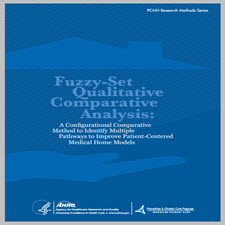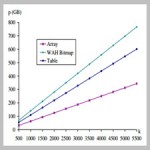توضیحات
ABSTRACT
This brief focuses on using fuzzy set Qualitative Comparative Analysis (fsQCA) to evaluate patientcentered medical home (PCMH) models. It is part of a series commissioned by the Agency for Healthcare Research and Quality (AHRQ) and developed by Mathematica Policy Research under contract, with input from other nationally recognized thought leaders in research methods and PCMH models. The series is designed to expand the toolbox of methods used to evaluate and refine PCMH models. The PCMH is a primary care approach that aims to improve quality, cost, and patient and provider experience. PCMH models emphasize patient-centered, comprehensive, coordinated, accessible care, and a systematic focus on quality and safety.
INTRODUCTION
Qualitative Comparative Analysis (QCA) is a powerful approach for studying PCMHs and other health services interventions (Thygeson, Solberg, Asche, et al., 2012; Kahwati, Lewis, Kane, et al., 2011). QCA was developed in political science to evaluate case studies with too few cases for standard statistical analysis and where the available data are often qualitative or a combination of qualitative and quantitative (Ragin, 1987; Rihoux and Ragin, 2009). QCA can be used to identify characteristics of the intervention, practices, patients, and practice settings that are associated with successful outcomes. QCA differs from traditional regression analyses in that it is based on set theory and logic, not statistics, and is designed to evaluate social systems characterized by causal complexity. Consequently, QCA is a radically different approach to studying health services interventions such as medical homes. This has three important implications for investigators. First, QCA assumes there can be many pathways to the same outcome, a phenomenon known as equifinality. Second, QCA assumes each pathway can contain different combinations of explanatory characteristics. Therefore, the method looks for the effect of combinations—configurations—of necessary and sufficient explanatory characteristics,1 rather than for the effect of each individual characteristic holding equal the other characteristics. Although traditional regression approaches may appear to be able to do this using interaction terms, they are not well suited to separately identifying necessary or sufficient characteristics (Schneider and Wagemann, 2012).
Year: 2013
Publisher : AHRQ
By : N. Marcus Thygeson, M.D.Deborah Peikes, Ph.D., and Aparajita Zutshi, Ph.D
File Information: English Language/ 14 Page / size: 315 KB
Download: click
سال : 2013
ناشر : AHRQ
کاری از : N. Marcus Thygeson, M.D.Deborah Peikes, Ph.D., and Aparajita Zutshi, Ph.D
اطلاعات فایل : زبان انگلیسی / 14 صفحه / حجم : KB 315
لینک دانلود : روی همین لینک کلیک کنید










نقد و بررسیها
هنوز بررسیای ثبت نشده است.